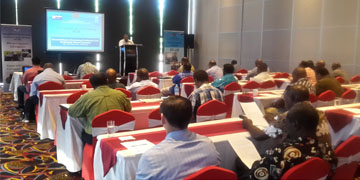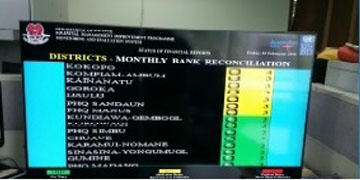
Purpose
The drive of monitoring and evaluation framework leads to the recommendation that concerns the monitoring and evaluation of financial reports which highlighted the need to develop realistic and achievable indicators to monitor outputs of the projects and activities in provincial and district level. It was developed to enable awareness and give reminders to all the responsible officers in particular to their region, province and district area.
The activity of the financial reporting can be easily viewed through the indicators (stop light colour coding) to measure the timely submission and easily identify which location is on high risk on having a failure to submit their reports. The establishment of the system will give an idea on how long does the province and/or district delayed on their submission of monthly bank reconciliation and annual financial statement reports. Through this software management tool, the financial statement reporting will be monitored closely to improve and strengthen the capability of the reporting system to an up to date MBR and AFS reports into the entire treasury department in the sub national level.

